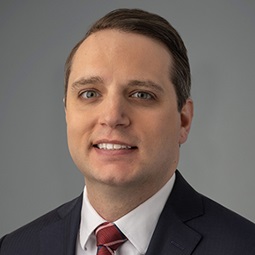Contributed by Doron P. Kenter.
“Don’t you mess around with [exclusivity]” – Lil’ Kim (as revised)
We’ve posted before on the contours of a chapter 11 debtor’s exclusive period within which to propose a plan of reorganization, and on just what might not constitute impermissible solicitation prior to approval of a disclosure statement. The Bankruptcy Court for the District of Massachusetts has now reminded us of the sacrosanct nature of the debtor’s exclusivity period, warning against any improper attempts to interfere with a debtor’s initial right to control its chapter 11 case.
Section 1121(b) of the Bankruptcy Code provides debtors with an exclusive right to file a plan of reorganization for 120 days after the commencement of a chapter 11 case. Though this “exclusivity period” is subject to extension or termination, it is automatic and inviolate unless and until the bankruptcy court orders otherwise. Hand in hand with section 1121(b), section 1125(b) of the Bankruptcy Code prohibits solicitation of the acceptance or rejection of a plan of reorganization in the absence of a court-approved disclosure statement. In turn, section 1126(e) of the Bankruptcy Code provides that “the court may designate any entity whose acceptance or rejection of such plan [i] was not in good faith, or [ii] was not solicited or procured [a] in good faith or [b] in accordance with the provisions of this title.”
In In re Charles Street African Methodist Episcopal Church of Boston, the debtor commenced a chapter 11 case and, on the same day, proposed a plan of reorganization. That plan proposed to pay OneUnited Bank (the debtor’s major secured creditor) in full over time, with no recoveries for general unsecured creditors. OneUnited, unhappy with that plan, moved to terminate exclusivity, attaching an unsigned “DRAFT” plan of reorganization of its own. In its motion, OneUnited noted that this alternative plan would pay unsecured creditors in full, subject to a cash contribution from the First Episcopal District of the African Methodist Church (which was not a debtor in the church’s chapter 11 case). OneUnited served the motion (without attachments) on seventeen of the church’s creditors, which constituted more than half of the debtor’s general unsecured creditors by number. Even though the draft plan was not attached, OneUnited promised to circulate copies of the attachments on request. Moreover, the complete motion (with attachments) was filed on the court’s public docket in the church’s chapter 11 case. In response, the debtor-church filed a motion to equitably subordinate OneUnited’s claim, to designate the votes of OneUnited, and for the award of its attorneys’ fees from OneUnited.
The bankruptcy court saw right through OneUnited’s clever attempt to dissuade creditors from accepting the debtor’s plan. As the bankruptcy court concluded, OneUnited’s draft plan “could not possibly have been confirmed” because it depended entirely on a large cash contribution from a non-debtor that had no present obligation to fund the plan. The court further noted that OneUnited was well aware of this “infirmity,” and that the motion and draft plan were all part of an effort undertaken “for [no] purpose other than to sway the votes of unsecured creditors with a false hope of payment in full. . . .” In other words, the OneUnited “plan” was not a true exit strategy – instead, it was a ruse to attempt to rally the debtor’s creditors against the debtor’s initial plan.
In considering the debtor’s motion, the bankruptcy court followed a previous non-binding decision from the same court, in which the court held that creditors who had filed and circulated a plan and disclosure statement prior to the termination of exclusivity period had violated both section 1121(b) and 1125(b) of the Bankruptcy Code. In this case, the bankruptcy court noted that it was irrelevant that OneUnited had not actually filed a plan or a disclosure statement in their own right and that only two creditors had actually been served with OneUnited’s plan – the fact remained that OneUnited had “filed” a “plan” during the exclusivity period. Regardless of who would have actually seen the draft plan, “[t]he filing of a document puts it on the public record . . . supplying actual notice to any who care to look at it.” Moreover, the court noted that section 1121(b) is “a rule against filing” (emphasis in original). Accordingly, the court could not countenance “the possibilities for mischief” in filing competing plans under the guise of otherwise permissible motions. And while the court did not conclude whether the filing and service of the exclusivity termination motion constituted an impermissible solicitation, it noted that the question was merely “academic” because OneUnited had clearly infringed upon the debtor’s exclusive period to file a plan, and, at a minimum, must be penalized for this misconduct.
Though the court declined to subordinate OneUnited’s claim, deeming such a remedy disproportionate to the harm (after all, it held a secured claim much larger than any other claims in the case), it fashioned a proper remedy, based on the specific facts of the case. First, the court prohibited OneUnited from proposing any plan (a directive that the court said it would not have ordered had OneUnited been able to actually benefit the church’s estate via an alternative plan). Second, the court awarded attorneys’ fees and expenses for the church’s counsel, at its regularly hourly rates (notwithstanding the fact that counsel was serving pro bono) for the work undertaken in connection with the church’s motion and held that OneUnited would not be entitled to payment of attorneys’ fees in connection with its exclusivity motion and defending against the debtor’s motion. Third, because the court found these first two remedies to be “inadequate to the offense” (i.e., OneUnited’s “knowing and deliberate violation of the right of exclusivity . . . made only the more egregious by the falsity of the hope and pretense of the ploy”), the court required OneUnited to fund the cost of the examiner to be appointed in the debtor’s chapter 11 case (subject to a $50,000 cap).
The bankruptcy court would not go so far as to subordinate OneUnited’s secured debt, but its harsh critique of OneUnited’s tactics serve as an uncompromising warning not to play games with a debtor’s exclusive right to manage its affairs in the first months of a chapter 11 case.














